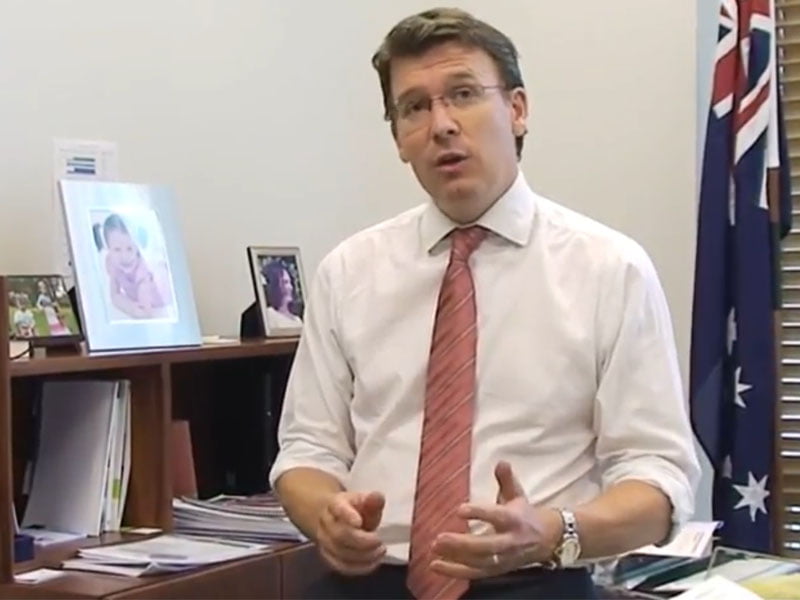The federal government’s new innovation visa pilot program has officially kicked off, allowing Australian companies to offer four-year visas to highly-skilled tech workers from around the world.
The Global Talent Scheme (GTS) visa program was unveiled in March as a 12-month trial to sit under the Temporary Skills Shortage visa scheme. It was a policy announced following sustained criticisms of the government’s shock axing of the popular 457 visa program.
The GTS scheme aims to provide a way for established businesses and startups to target “highly skilled and specialised workers” that don’t exist in Australia in order to fill skills gaps.

“This scheme is designed to facilitate businesses accessing top talent from around the world. It complements existing Temporary Skills Shortage visa arrangements by providing the flexibility to handle high value, niche skills that can’t be obtained under the standard visa program,” Citizenship Minister Alan Tudge said.
“A lot of the top talent is in fierce demand from companies all over the world. We want this talent to come to Australia, to support businesses here and create wealth for the nation.”
StartupAus chief operating officer Alex Gruszka said the new visa scheme has the potential to help startups overcome one of the biggest roadblocks to growth.
“Talent is the single biggest factor holding back startups in Australia. This scheme isn’t a huge amount of visas, but those five per year can be in really critical roles,” Mr Gruszka told InnovationAus.com.
“If you can hire the right people then you can unlock very significant growth in your business,” he said.
“On top of existing visas that startups already use, they now have five of these really flexible visas to attract exactly the sort of roles without having to wait for government to catch up to them. This has the potential to really turbocharge growth in startups.”
But Australian angel investor and M8 Ventures partner Alan Jones said many elements of the new scheme are still unclear, including how the companies will be prioritised under the scheme, and how many visas in total will be available.
“It’s still more vague and subject to discretion than I’d like. Is there a goal for the GTS in terms of number of employers approved in a period of X years? Or a number of visas to approve in X years,” Mr Jones told InnovationAus.com.
“Do we know how many resources will be put behind achieving those goals? That’s all unclear.”
“There’s clear evidence that the feedback with industry has been taken into account and acted upon. It’s still unclear whether this will be better for the industry and Australia than the system it replaced.”
The pilot program began on Sunday, and the government has now released further information on the scheme and how it will be implemented.
Through the GTS scheme, visas of up to four years will be on offer, along with a pathway to permanent residency.
The roles for the new innovation visa do not have to fall under the current skilled occupation lists and will be fast-tracked by the government.
The established businesses scheme will be open for companies with an annual turnover of at least $4 million, with businesses able to use 20 visas per year.
Labour market testing will have to be undertaken for each position, and they must have a minimum annual wage of at least $145,000.
For the startups stream, a company must operate in the tech or STEM sectors, have secured an investment of at least $50,000 from an investment fund registered as an ESVCLP or received an Accelerating Commercialisation grant and be approved by the government’s “startup authority”.
Eligible startups will be able to offer five GTS visas annually for positions with a wage of at least $80,000. But that figure can include equity, with a minimum cash component of $53,900.
The government’s startup authority will be made out of industry representatives that will assess applicants and decide whether they are legitimate startups.
Initially, to be vetted by the authority, a company will have to pass the funding test, but this requirement is likely to be loosened as the scheme goes forward.
It’s unclear who will be on the startup authority board, and it appears the government is yet to decide exactly what the definition of a startup will be.
Mr Gruszka said the definition must focus on a startup’s potential for growth.
“From our perspective the scheme is set up because of the economic benefits provided by startups,” he said.
“The reason why there is a startup carve-out is because the government wants to encourage businesses that can grow really fast and hire a lot of people.
“Any definition has to stem from that justification – they have to be young, small companies that use technology to address a large market,” he said.
Setting strict restrictions on what startups can access the new visas and the establishment of the new body, is an attempt to ensure the new scheme isn’t rorted.
“People will go to great lengths to get a visa to Australia, so it’s entirely possible that fraudsters would set up a new business, say it’s a startup, and then just use it to import family, friends or even paying visa-buyers from overseas. This would put the whole program at risk for startups,” Mr Gruszka said.
The new GTS scheme was announced nearly a year after the surprise scrapping of the 457 visa program. The reveal was criticised by the Opposition, which said it was a replica of a Labor policy from last year.
Do you know more? Contact James Riley via Email.

